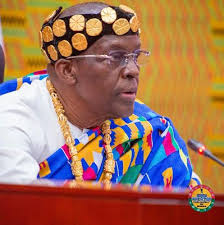The University of Ghana Alumni Association held its lecture on September 19, 2024, on the theme “Thirty Years of Parliamentary Democracy: The Journey Thus Far.”
The event was headlined by the Speaker of Parliament, Rt. Hon. Alban Sumana Kingsford Bagbin, who delivered an insightful address reflecting on Ghana’s democratic journey under the Fourth Republic.
In his address, Speaker Bagbin highlighted the resilience of Ghana’s democracy, noting its stability since the transition to constitutional rule in 1993. He credited the uninterrupted stretch of governance as a remarkable achievement, particularly in a region often plagued by military coups and authoritarian regimes.
However, Bagbin cautioned that the nation’s democracy faces significant tests with political, economic, and social pressure building.
Bagbin expressed concerns about the imbalance of power between the executive and legislative branches of government.
He argued that the current constitutional framework, which merges executive and legislative functions, has eroded the separation of powers. This, he said, has allowed the executive to wield excessive influence over Parliament, undermining its ability to hold the government accountable.
Bagbin emphasized that this imbalance hampers Parliament’s role as an independent body representing the people.
The speaker also addressed a growing “trust deficit” between Ghanaians and their leaders. Citing Afrobarometer surveys, Rt. Hon. Bagbin highlighted public perceptions of corruption and inefficiency within Parliament and other institutions. He warned that this declining trust threatens the legitimacy of the democratic process, making it harder for leaders to govern effectively.
Another major concern raised by Bagbin was the rising cost of political campaigns in Ghana. He described the increasing influence of money in politics as a serious threat, noting that it marginalizes competent candidates who lack financial resources.
Bagbin argued that elections are becoming more about personal wealth than public service, undermining the integrity of the political system.
Bagbin also touched on the issue of gender representation in Parliament, acknowledging that while there have been slight increases in female participation, women remain underrepresented.
He stressed the need for more inclusive representation, noting that a true democracy requires the active participation of all groups, including women.
Story by: Cindy Selasi Humade | univers.ug.edu.gh

